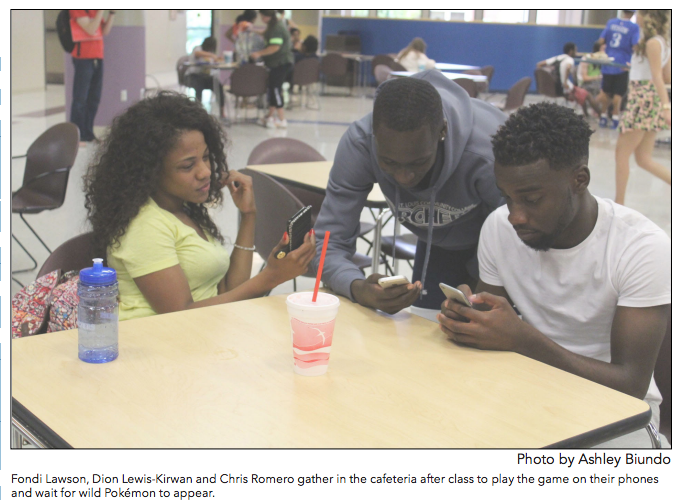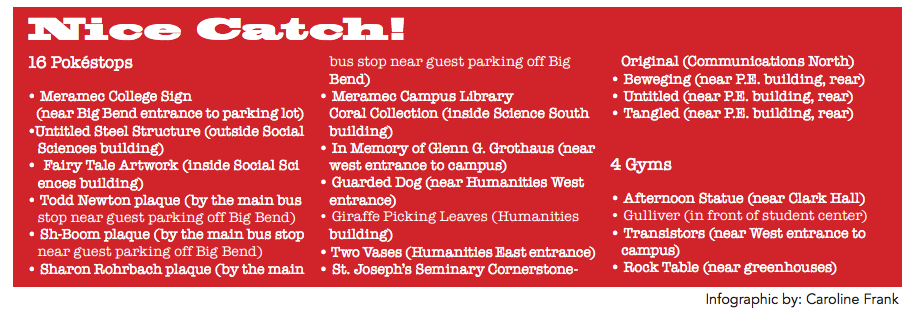The game that took over the nation
 By: Andrew Ameer
By: Andrew Ameer
Opinions Editor
Since its release earlier this summer, Pokémon GO has taken the nation, and the world, by storm.
Accumulating millions of downloads in its first few days online, and now sitting at over 100 million total downloads, it has become one of the most popular apps for android and iphone of all time in just a few short weeks.
Go to just about any park in America these days, and you will find dozens of people walking about with their phones out playing and discussing the game.
The game is a throwback to the handheld Pokémon games of the 90’s that users enjoyed playing on Nintendo’s Gameboy system. But this game features the latest in augmented reality technology, to bring the player and the game together with the real world.
The game is in essence an electronic geocaching game, in which players, guided by the GPS signals on their phones, navigate the real world to locations within the game to find Pokémon, battle in gyms, and hit PokéStops to collect items.
Players will try to collect every one of the original 151 “1st Generation” Pokémon through a combination of hatching them from eggs, evolving, and catching them in the wild.
Pokémon spawn seemingly at random, although some players have figured out how to calculate with limited certainty where a particular Pokémon will appear.
The game has not come without controversy, however. With demand being so popular during the initial few days, many players could not even log on because the servers couldn’t take the demand. Niantic, the company behind Pokémon GO, has also faced criticism for removing features of the game that were popular with users, like a feature that allowed users to track nearby Pokémon in order to catch them more efficiently. In addition, Niantic has also banned third party apps from accessing the game in order to help players locate Pokémon with greater ease, in some cases terminating the accounts of users who use third party apps.
The game also has critics who say it has increased cases of people using cellphones while driving, in response Niantic released an update that warns users not to play the game if it detects the user is traveling too fast.
But proponents of the game far outweigh the critics. Many people say that the game helped them get out of the house and exercise. People with social anxiety have been able to start conversations and form new relationships just by playing the game and talking about it with other people.
An important feature of the game is the teams system within the game. Once you reach level 5, you are able to choose from three teams, which are Mystic, Valor, and Instinct. Joining one of these teams, you work with other teammates to take control of and defend gyms, which can build a sense of belonging and camaraderie, sometimes with total strangers.
In addition to requiring players to move about in order to find Pokémon and advance in the game, the game further incentivizes walking around with its egg hatching system. In order to hatch Pokémon from eggs, users must log either 2km, 5km, or 10km of walking before certain eggs will hatch.
There are also 4 region-exclusive Pokémon that will require users to travel internationally it seems. So far the regions are North America (Tauros), Europe (Mr. Mime), Australia (Kangaskhan), and Asia (Farfetch’d). Niantic has remained silent on the prospects of legendary Pokémon so far.












